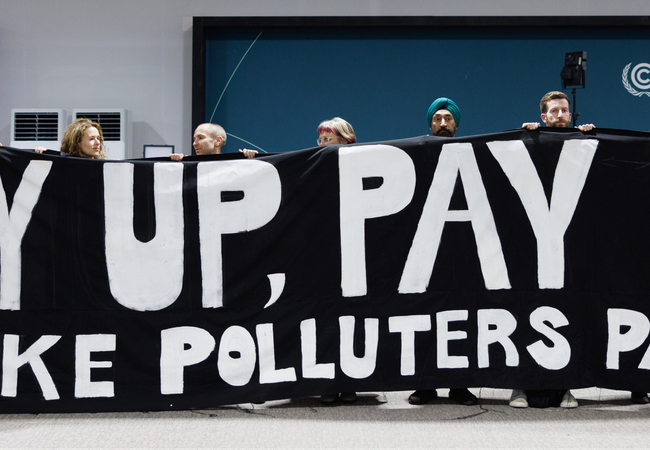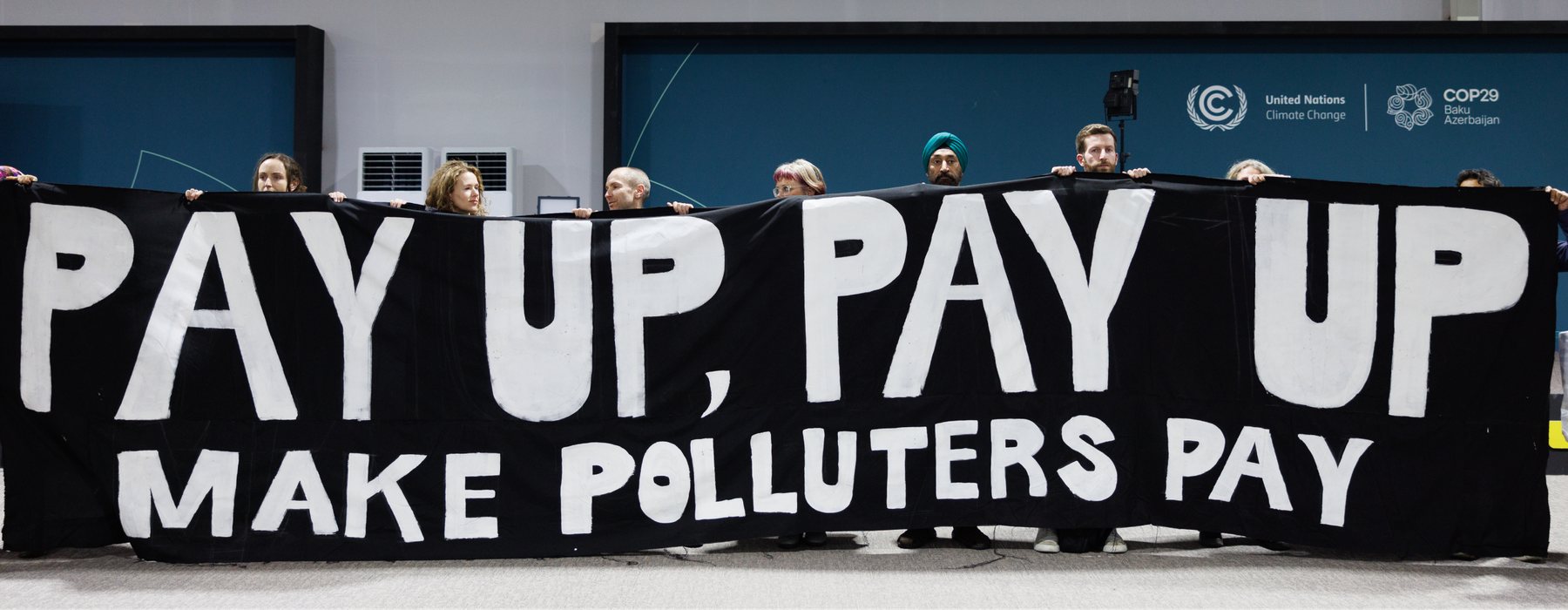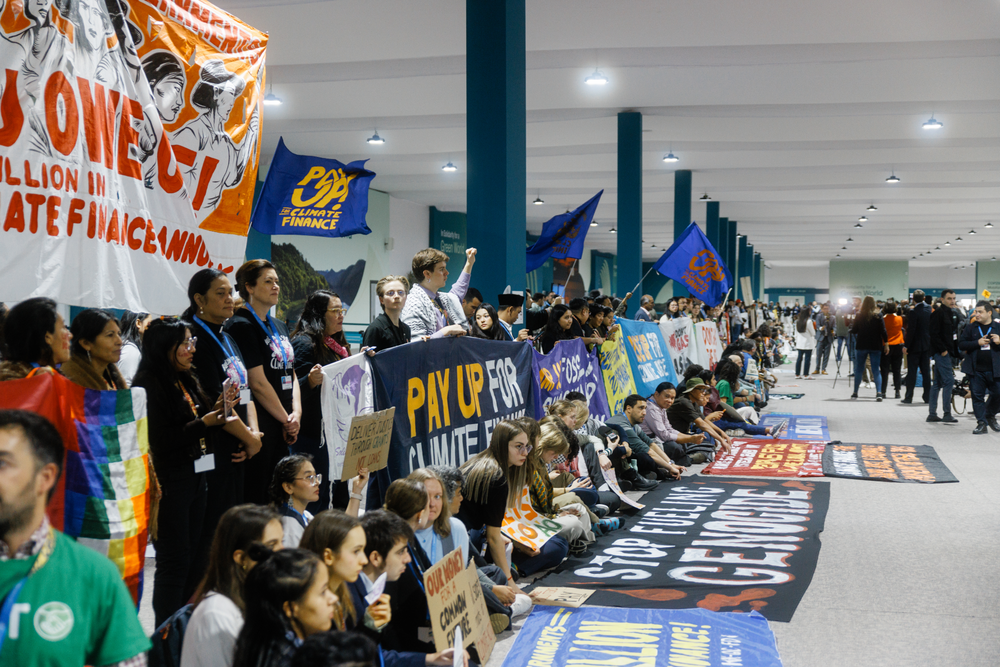Oxfam International


So, what happened at COP29?
Ultimately, those with the broadest shoulders (and sky-high emissions) can, and should, help foot the growing climate bill.
At this year's COP29, there seemed to be one clear mission: agreeing a new global target for climate finance.
This should be money that wealthy countries (who are most responsible for the climate crisis) pay to support communities facing the impacts of the damage done in the Global South. This money should be for access to renewable energy, to build resilience to climate impacts and achieve climate justice.
Oxfam GB's Senior Policy Advisor for Climate Justice, Chiara Liguori, explains what happened at COP29 and why was it such a failure.
“Powerful nations have shown no leadership, no ambition, and no regard for the lives of billions of people on the frontlines of the climate crisis.”
The Least Developed Countries (LDC) Group
Oxfam International

Activists demanding action at COP29
So how did the negotiations go?
They failed miserably.
What was agreed at COP29 completely missed the mark. Lower income countries were bullied into accepting, at the very last minute, a climate finance goal of only $300bn per year when what was needed was trillions. This is a pittance in comparison to what is really needed, and there is not even the commitment to provide this money in grants rather than loans, adding additional burden to countries who are already overwhelmed by debt.
To add fuel to fire, the goal does not even include a clear commitment to provide finance for countries and communities to recover from climate disasters, aka loss and damage.
What does this mean for lower-income countries?
The deal will mean low-income countries – who have done little to cause the crisis, feel the effects first and worst, and often already highly indebted – are left footing the bill for the cost of adapting to the impacts of the climate crisis and recovering from those unavoidable losses and damage.
Even worse, it will leave people unprotected and the shift to a low-carbon economy will happen too slowly and too unequally – with marginalised communities paying the highest price at the expense of the most marginalised communities. Ultimately, the lack of sufficient funding to lower-income countries might affect the world’s chances of staying within that target of limiting global warming to 1.5°C.
Behind this result, there is a lot of déjà vu. Rich countries deployed their traditional tactics to avoid footing the bill. They cited legal reasons, limited amount of money in public coffers, among others. And we saw similar tricks in other negotiations helping richer countries evade their responsibility to pay. Now we know that their agreement in 2022 to set up a loss and damage fund didn’t mean they were ready to pay what they owe.
What did the UK do?
The UK government went to COP29 with the stated intention to show renewed global leadership on climate. And we did see some actions behind these words. The Prime Minister was the only leader from G7 countries to attend the conference. And the UK was the only rich country to announce a new target to cut UK emissions by 81% by 2035. While we had hoped the UK would go even further considering its historical responsibility and its wealth, this was definitely an important step forward.
However, when it comes to the climate finance deal, we would have wanted to see much more from the UK. While the UK position was slightly more flexible than other rich countries, we didn’t see it champion a truly ambitious goal.
The minimum the UK and other rich countries can now do is to quickly meet the $300 billion so-called ‘deal’ and consider it as a floor, not a ceiling. The government must also ensure that it is new money, provided in grants and that it properly supports communities recovering from the losses and damages caused by climate disasters.
It's time to make polluters pay
There are countless ways to generate funds by increasing taxes on the biggest and richest polluters - so there's no excuse for weak ambition.
As a starting point, the UK government could start properly taxing fossil-fuelled private jets and superyachts. This common-sense option is supported by 81% of the British public, and our analysis showed that proper taxes on these luxury modes of transport could have generated £2bn in 2023. This is more than the UK spent on climate finance in the same year.
But it doesn't need to stop there. Taxing extreme wealth or redirecting the public money supporting fossil fuel production could generate much more funds, all the while ensuring that people on low-incomes in the UK are protected.
Ultimately, those with the broadest shoulders (and sky-high emissions) can and should help foot the growing climate bill.
